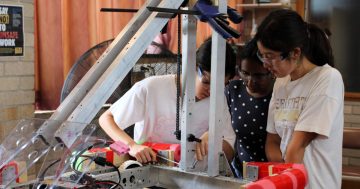
The future of work is not about time spent at a desk or the number of tasks completed – it’s about outcomes. Image: LinkedIn.
Dan Schawbel looks into the near future of work and plots a trend that is making the traditional models of productivity and performance measurement obsolete.
Organisations worldwide are becoming more efficient through automation, people analytics, and employee monitoring.
I and many other observers have identified a shift from time spent doing work, to outcomes resulting from work.
Where, when and how you work won’t matter as much as the results generated, such as increasing productivity or decreasing expenses.
Post-pandemic, employers are focusing too much on pushing employees back to the office, and not enough on outcomes, which is their true business value.
When you focus on outcomes, it shouldn’t matter whether employees work at an office, a coffee shop or at home – if they deliver results, they earn freedom.
There’s been a paradigm shift quietly reshaping the landscape of work. As we move further into the 21st century, organisations are increasingly realising that traditional models of productivity and performance measurement are becoming obsolete.
The future of work is not about time spent at a desk or the number of tasks completed – it’s about outcomes.
I want to explain why the workplace is rapidly evolving to become almost entirely outcome-focused and what this means for employers and employees.
For decades, the standard model was based on inputs: hours worked, tasks completed, and physical presence in the office.
This industrial-era approach assumed that more time spent working directly correlated with higher productivity and better results.
However, as our economy has shifted from manufacturing to knowledge and service-based industries, this model has shown its limitations.
In today’s complex, creative and often digital work environments, the connection between time spent and value created is far less linear.
The pandemic accelerated a trend that was already in motion: the rise of remote work. This shift has opened new possibilities for both employers and employees.
Organisations can now access national and even international talent pools, while workers have gained unprecedented flexibility in how and where they work.
As these trends continue, the emphasis on outcomes over inputs will only grow stronger.
Data analytics and artificial intelligence are providing deeper insights into performance and productivity, allowing organisations to identify what truly drives success.
As automation and AI continue to reshape the job market, the nature of human work is evolving.
Routine and repetitive tasks are increasingly being automated, leaving humans to focus on work that requires creativity, emotional intelligence, and complex problem-solving.
These types of tasks are inherently more difficult to measure in terms of time or quantity, making an outcome-focused approach not just preferable, but necessary.
Younger generations in today’s workforce seek purpose, autonomy, and work-life balance.
An outcome-focused approach aligns well with these expectations, as it provides clarity on what needs to be achieved while allowing flexibility in how the work is done.
In the ongoing war for talent, organisations that embrace outcome-focused work will have a significant advantage.
They’ll be able to attract and retain top performers who value results over rigid schedules or micromanagement.
As we look further into the future, even outcomes may evolve.
Some forward-thinkers are exploring concepts such as impact-focused work, where the emphasis is not just on achieving specific outcomes, but on the broader impact of one’s work on the organisation, society, and the environment.
This evolution reflects a growing awareness of the interconnectedness of our work and its wider implications.
It also aligns with the increasing desire among workers, particularly younger generations, to find meaning and purpose in their careers.
The shift towards an outcome-focused workplace is not just a trend; it’s a fundamental reimagining of how we work.
Driven by technological advancements, changing employee expectations, and the evolving nature of work itself, this shift promises to create more productive, satisfying, and aligned work environments.
Organisations that successfully navigate this transition will be better positioned to thrive in an increasingly competitive and rapidly changing business landscape.
However, this transition will require significant changes in how we think about work, management, and organisational structure.
It will challenge long-held assumptions and require new skills and approaches, but for those willing to embrace this change, the rewards are likely to be substantial.
The workplace of the future will be one where value is measured not by time spent, but by goals achieved; not by presence, but by impact.
As we continue to redefine what work means in the 21st century, the focus on outcomes will be at the heart of this transformation, shaping a new era of work that is more flexible, more meaningful, and ultimately, more human.
Dan Schawbel is a bestselling author and managing partner of Workplace Intelligence, a research and advisory firm helping HR adapt to trends, drive performance and prepare for the future. This article is part of his Workplace Intelligence Weekly series.











